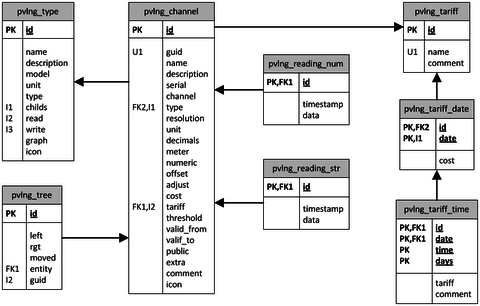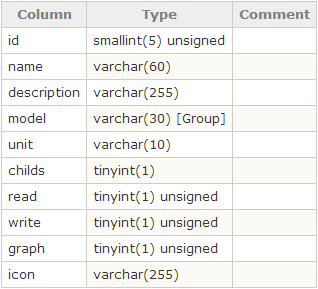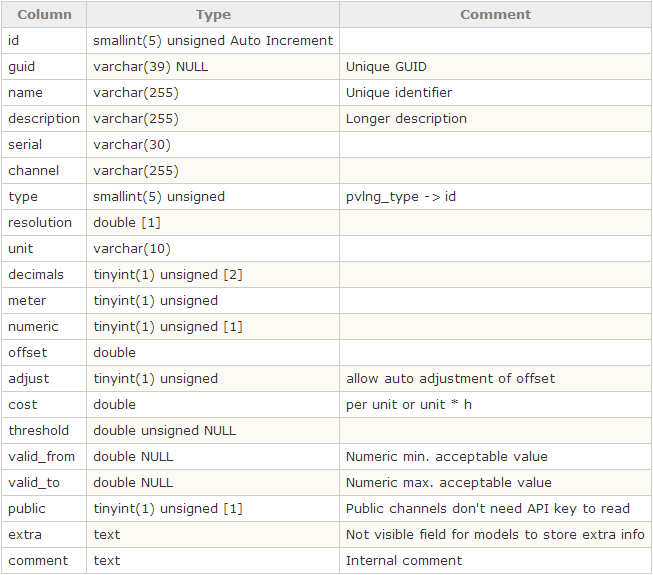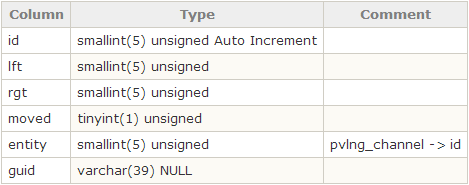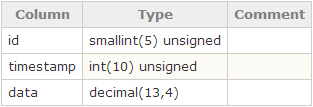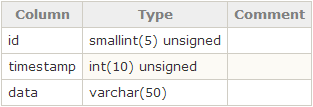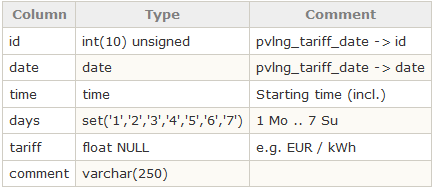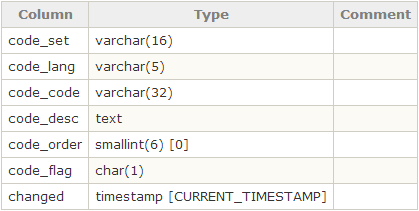Difference between revisions of "Database structure"
From PhotoVoltaic Logger new generation
m |
m (→Translations) |
||
| Line 83: | Line 83: | ||
[[File:DBTableBabelkit.png]] | [[File:DBTableBabelkit.png]] | ||
| + | ---- | ||
<references/> | <references/> | ||
Revision as of 21:01, 30 August 2014
General
Here are the most important tables with their references:
Channel types
pvlng_type
Channels
pvlng_channel
Channel hierarchy
pvlng_tree
The channel tree is organized in a nested set structure.
The nested set model is a particular technique for representing nested sets (also known as trees or hierarchies) in relational databases.
The nested set model is to number the nodes according to a tree traversal, which visits each node twice, assigning numbers in the order of visiting, and at both visits. This leaves two numbers for each node, which are stored as two attributes. Querying becomes inexpensive: hierarchy membership can be tested by comparing these numbers. Updating requires renumbering and is therefore expensive.
Wikipedia:Nested set model
More theory about nested sets.
Measuring data storage
pvlng_reading_num, pvlng_reading_str
The difference between the reading tables is only the data format for reading values.
The timestamps are not stored as "normal" timestamp type, but as unsigned integer.
It was tested and have significant more performance for consolidated data readouts.
Dashboards
pvlng_dashboard
Tariffs
pvlng_tariff
pvlng_tariff_date
pvlng_tariff_time
Charts
pvlng_view
Translations
pvlng_babelkit
Here are stored all translations for the web frontend based on the "BabelKit - Multilingual Code Description Lookup Table" [1] project.
I've added a column to detect recently changed translations for upgrade SQLs.
